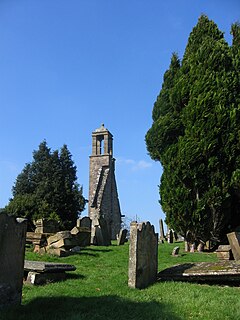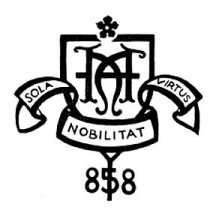The Scottish Government is the executive government of the devolved Scottish Parliament. The government was established in 1999 as the Scottish Executive under the Scotland Act 1998, which created a devolved administration for Scotland in line with the result of the 1997 referendum on Scottish devolution. The government consists of cabinet secretaries, who attend cabinet meetings, and ministers, who do not. It is led by the first minister, who selects the cabinet secretaries and ministers with approval of parliament.

Her Majesty's Advocate, known as the Lord Advocate, is the chief legal officer of the Scottish Government and the Crown in Scotland for both civil and criminal matters that fall within the devolved powers of the Scottish Parliament. He or she is the chief public prosecutor for Scotland and all prosecutions on indictment are conducted by the Crown Office and Procurator Fiscal Service, nominally in the Lord Advocate's name.
Her Majesty's Solicitor General for Scotland is one of the Law Officers of the Crown, and the deputy of the Lord Advocate, whose duty is to advise the Scottish Government on Scots Law. They are also responsible for the Crown Office and Procurator Fiscal Service which together constitute the Criminal Prosecution Service in Scotland.
The General Register Office for England and Wales (GRO) is the section of the United Kingdom HM Passport Office responsible for the civil registration of births, adoptions, marriages, civil partnerships and deaths in England and Wales and for those same events outside the UK if they involve a UK citizen and qualify to be registered in various miscellaneous registers. With a small number of historic exceptions involving military personnel, it does not deal with records of such events occurring within the land or territorial waters of Scotland, Northern Ireland or the Republic of Ireland; those entities' registration systems have always been separate from England and Wales.
Humanist Society Scotland (HSS) is a Scottish registered charity that promotes humanist views and offers Humanist ceremonies. It is a member of the European Humanist Federation and the International Humanist and Ethical Union.
A register office, much more commonly registry office, is a British government office where births, deaths and marriages are officially recorded and civil marriages take place. It is the local civil registry office.

Sir Stair Agnew was a Scottish public official. He served as Registrar General for Scotland.

Francis Mulholland, Lord Mulholland, is a Scottish judge who has been a Senator of the College of Justice since 2016. He previously served from 2011 to 2016 as Lord Advocate, one of the Great Officers of State of Scotland and the country's chief Law Officer, and as Solicitor General, the junior Law Officer.
Birendra Narayan Chakraborty OBE, ICS was an Indian civil servant, politician and the second governor of Haryana.

The Court of the Lord Lyon is a standing court of law which regulates heraldry in Scotland. The Lyon Court maintains the register of grants of arms, known as the Public Register of All Arms and Bearings in Scotland, as well as records of genealogies.
Alexander Burt Taylor, was a Scottish civil servant and author who served as the Registrar General for Scotland.
National Records of Scotland is a non-ministerial department of the Scottish Government. It is responsible for civil registration, the census in Scotland, demography and statistics, family history and the national archives and historical records.
Niall Forbes Ross Dickson CBE was until 2016 the chief executive and registrar of the General Medical Council (GMC). Since February 2017, he has been the chief executive of the NHS Confederation. He was the chair-elect of the International Association of Medical Regulatory Authorities (IAMRA) from 2012 to 2014, and the chair from 2014 to 2016.
Events from the year 1960 in Scotland.
James Allan Ford CBE MC was a Scottish writer, soldier and senior civil servant.
Sir Gordon Manzie, KCB was a British civil servant, former chief executive of the Property Services Agency.









